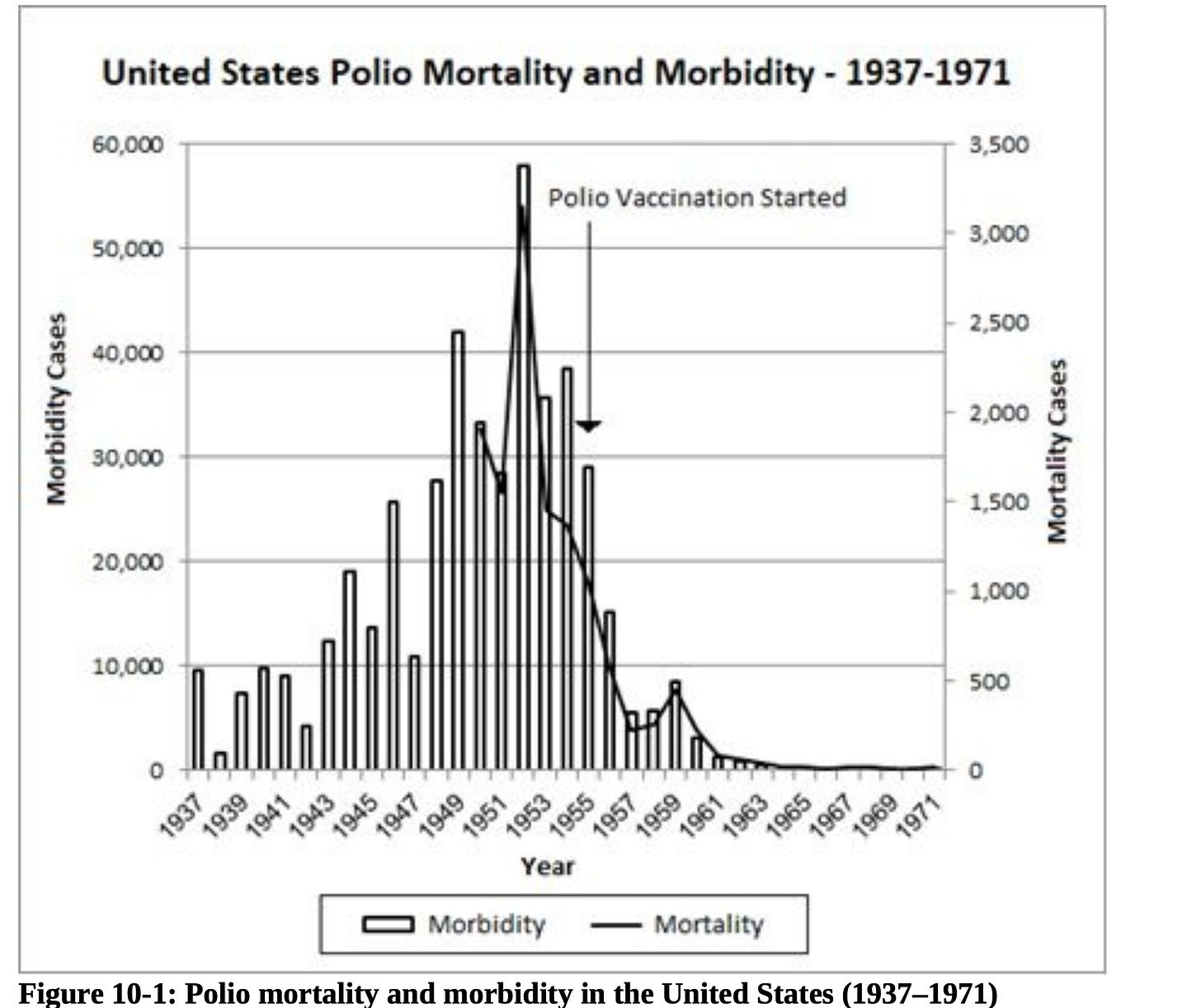Personal Science Week - 230824 Conspiracy Theories
Bioweapons over San Francisco, plus great new research studies you can join
Personal Science is more than just a quantitative analysis of our lives and our health. It’s also an approach to decision-making in a world that is otherwise too complex to understand. But our open-minded, skeptical approach can lead us to pursue ideas that are, by all accounts, just plain wrong.
This week we discuss conspiracy theories, plus some new research studies you can join.
A Personal Scientist can’t claim to be open-minded without occasionally confronting what are commonly dismissed as “conspiracy theories”, far-fetched and bizarre explanations for otherwise straightforward phenomenon. Was the moon landing faked? Did an alien spaceship crash in New Mexico? Is the COVID vaccine activated by 5G networks?
An open-minded approach has to accept that literally every possibility is on the table. And a little knowledge of history reveals plenty of examples where common sense and the “mainstream explanation” was wrong.
Personal Scientists are proud of Nullius in verba — take nobody’s word for it. Doesn’t that put us squarely in the target of conspiracy theorists, who similarly refuse to accept “conventional” explanations simply because they are “mainstream”?
What’s a Conspiracy Theory?
Tom Stafford, a University of Sheffield cognitive scientist, digs into conspiracy theories at his Substack Reasonable People. Quoting a recent book by Quassim Cassam, he defines Conspiracy Theories in terms that resonate with many of the ideals we Personal Scientists hold dear:
speculative : “the only way to uncover a conspiracy is by focussing on odd clues or anomalies that give the game away...it’s all about connecting the dots”
contrarian : Assume a “fundamental mismatch between how things look and how they are”.
esoteric : Non-obvious and often bizarre conclusions
amateur : Privilege amateur investigators, and denigrate professional credentials.
premodern: There are no coincidences. Look for explanations at the suprahuman level (the logic of institutions, bureaucracies, cultures etc).
self-sealing: Reject obvious, established explanations, making it difficult or impossible to refute, since an appeal to authority is by definition an example of the problem.
Don’t these points apply to half of what we do around here? I mean, what’s more speculative, contrarian, esoteric, amateur, and “pre-modern” than the idea that a teaspoon of potato starch can help your sleep?
Sometimes They’re Right
One problem with people who hew to the standard explanations is that sometimes the whacko conspiracists have a point. My favorite example:
The US government carried out hundreds of bioweapons simulations in the 1950s and 1960s, including Operation Sea-Spray, in which the US Navy sprayed the bacterium Serratia marcescens into the air above San Francisco. You know Serratia as that pink-colored goo that accumulates in your sink or bathtub if you don’t clean regularly. Usually it’s pretty harmless, which is why Cold War scientists thought it would make a good candidate for an experiment to see how quickly a bioweapon would spread over a major metropolitan area. (Spoiler alert: the data showed that nearly all 800,000 residents inhaled at least 5,000 particles — enough to kill if it had been a deadly pathogen). Despite scientific consensus of its safety at the time, a surge in hospitalizations attracted immediate alarm from uninvolved researchers, and the whole scheme was uncovered by a congressional committee in the 1970s.
Recently we’ve been studying the assertions of presidential candidate RFK Jr (which we referenced in PS Week 230629), in hopes of finding the flaws in his arguments. Among other claims, I found this chart in a book that discusses the polio vaccine, often considered one of the greatest scientific achievements of the 20th Century:
Seen in this wider context, does the eradication of polio still look like a miracle? Also note that the vaccine was available to only to a small subset of the population for the first few years, so the steep fall in rates is even more curious. Meanwhile, have you ever hear of the Cutter Incident? Over 40,000 children contracted polio from accidental release of a live virus version of the vaccine. (Incidentally, RFK Jr apologists explain the rise and then drop in polio cases on the pesticide DDT, which they say maps more closely to the case data as well as the odd fact that infections were more common in rural than in urban areas).
Okay, so sometimes past governments did crazy things. It would be much harder, perhaps impossible, to pull that off in today’s much more activist environment, right?
There’s certainly some truth to that, especially considering how easy it is to access alternative information channels, where motivated people can share information much more widely than in the past. Of course, the same channels that improve access to good information can do the same for bad information.
The Personal Science response is that unfortunately there is no magic answer. You’ll have to make up your own mind. Sure you can rely on experts, but that only begs the question of which experts, many/most of whom are themselves relying on second-hand information from people they trust.
More Research Studies
The Digital Trials Center at Scripps Research is recruiting volunteers for several interesting studies:
CGM/Glucose : If you've been diagnosed with diabetes or pre-diabetes, this looks like a great study. Get a free microbiome test (and results), plus a Dexcom G6 CGM, a FitBit, and $175. PROGRESS Study
COVID: If you’ve tested positive for COVID in the past 48 hours, join the Scripps-eMed Covid-19 monitoring study. They’ll send you a series of rapid tests and ask you to send blood samples. Earn up to $200 if you fulfill all their requirements.
Sleep: The REFRESH study asks you to connect your smart watch or other wearable to their special data collection app that will monitor and analyze your sleep.
I’m not eligible for most of these (fortunately? unfortunately?) so I haven’t tried them myself, but it’s a reputable organization and in most cases they promise to give access to your raw data.
About Personal Science
Although this newsletter is published weekly, most of our posts are intended to be timeless. Please check our archives for additional ideas for how to use science for personal, rather than professional reasons.




I take it you still haven’t found what you’re looking for in RFK’s work? I found it to be pretty well evidenced, myself.